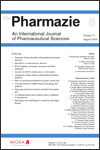
Reduction in tumour cell invasion by pigment epithelium-derived factor is mediated by membrane type-1 matrix metalloproteinase downregulation
Prostate cancer and breast cancer are major killers among males and females respectively. In this study, pigment epithelium-derived factor (PEDF) was examined for its effect on commonly used human prostate cancer and human breast cancer cell lines. PEDF increased adhesion of cells to
collagen-I, with decreased expression of phosphorylated focal adhesion kinase (p-Fak) consistent between the two cell types. Invasion of both tumour cell types through collagen-I was also reduced by PEDF, with decreased expression of membrane type-1 matrix metalloproteinase (MT1-MMP). These
results were confirmed with specific antibodies to MT-MMP1. This study provides some vital clues as to which molecular players are perturbed by PEDF treatment of human prostate and breast cancer cells, raising hope that PEDF can in future be trialled against these major cancers in attempts
to procure safer yet effective therapies for cancer.
Document Type: Research Article
Publication date: 01 December 2012
- Pharmazie is a leading journal in the field of pharmaceutical sciences. As a peer-reviewed scientific journal, Pharmazie is regularly indexed in the relevant databases like Web of science, Journal Citation Reports and many others. The journal is open for submissions from the whole spectrum of pharnaceutical sciences including Pharmaceutical Chemistry, Experimental and Clinical Pharmacology, Drug Analysis, Pharmaceutics, Pharmaceutical Biology, Clinical Pharmacy etc.
- Information for Authors
- Submit a Paper
- Subscribe to this Title
- Ingenta Connect is not responsible for the content or availability of external websites
- Access Key
- Free content
- Partial Free content
- New content
- Open access content
- Partial Open access content
- Subscribed content
- Partial Subscribed content
- Free trial content